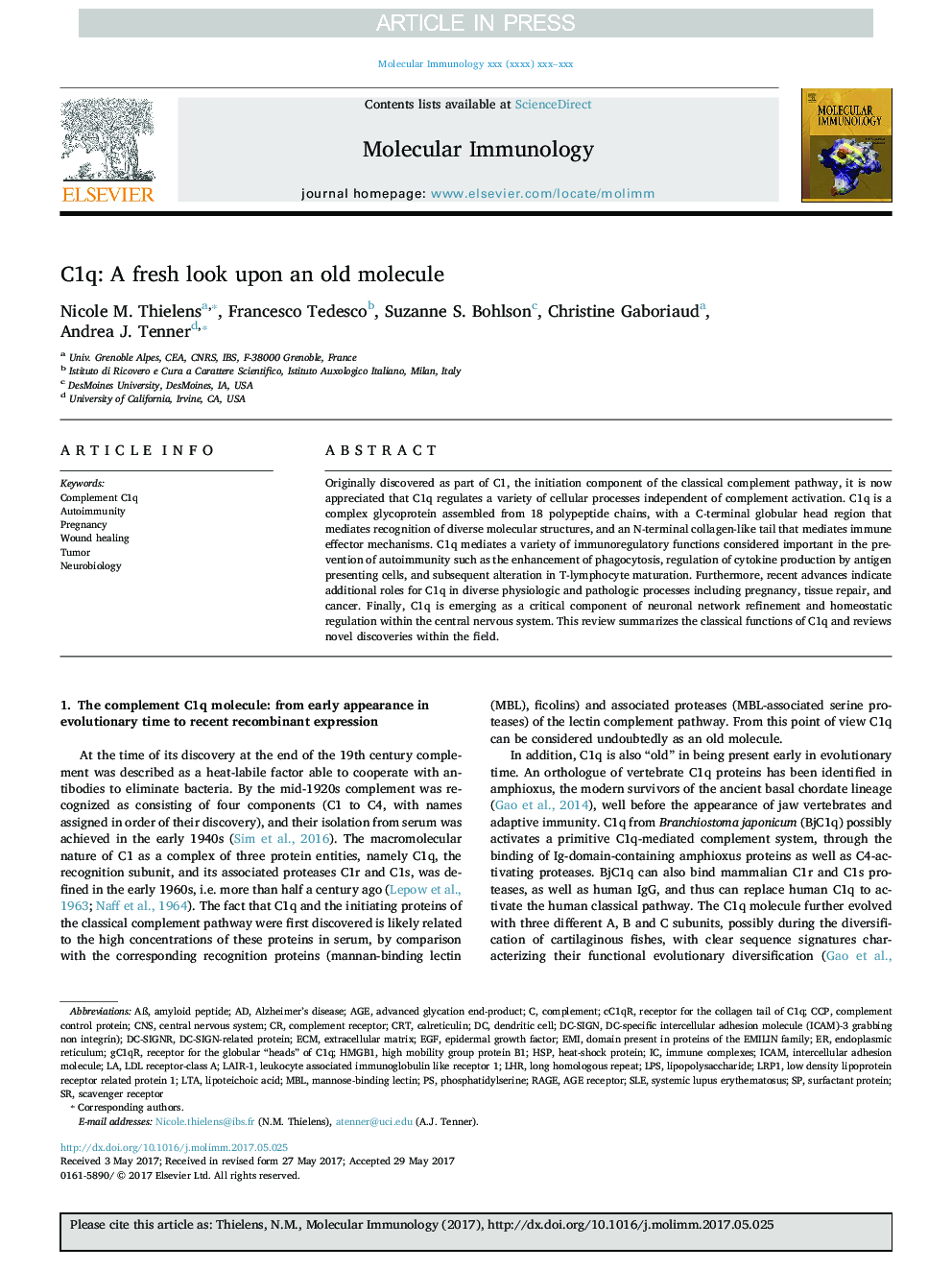| Article ID | Journal | Published Year | Pages | File Type |
|---|---|---|---|---|
| 5591975 | Molecular Immunology | 2017 | 11 Pages |
Abstract
Originally discovered as part of C1, the initiation component of the classical complement pathway, it is now appreciated that C1q regulates a variety of cellular processes independent of complement activation. C1q is a complex glycoprotein assembled from 18 polypeptide chains, with a C-terminal globular head region that mediates recognition of diverse molecular structures, and an N-terminal collagen-like tail that mediates immune effector mechanisms. C1q mediates a variety of immunoregulatory functions considered important in the prevention of autoimmunity such as the enhancement of phagocytosis, regulation of cytokine production by antigen presenting cells, and subsequent alteration in T-lymphocyte maturation. Furthermore, recent advances indicate additional roles for C1q in diverse physiologic and pathologic processes including pregnancy, tissue repair, and cancer. Finally, C1q is emerging as a critical component of neuronal network refinement and homeostatic regulation within the central nervous system. This review summarizes the classical functions of C1q and reviews novel discoveries within the field.
Keywords
ECMLAIR-1cC1qRDC-SIGNCCPDC-SIGNRICAMHMGB1LHRHspEMIhigh mobility group protein B1CrtEGFgC1qRAlzheimer’s diseaseCNSDendritic cellAgecentral nervous systemendoplasmic reticulumepidermal growth factorExtracellular matrixAsComplementimmune complexesAdvanced glycation end-productintercellular adhesion moleculecomplement control proteinheat-shock proteinamyloid peptidecalreticulinComplement receptor
Related Topics
Life Sciences
Biochemistry, Genetics and Molecular Biology
Molecular Biology
Authors
Nicole M. Thielens, Francesco Tedesco, Suzanne S. Bohlson, Christine Gaboriaud, Andrea J. Tenner,
